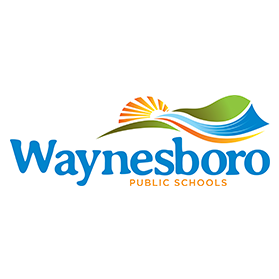
Waynesboro Public Schools is working with Volatia Language Network on a language-access plan to meet the needs of students from those ESL homes.
Volatia has provided interpretation and translation services in more than 2,000 instances to Waynesboro students and their families who communicate in American Sign Language, Gujarati, Mandarin, Spanish, Vietnamese, and other languages since the partnership began in 2018.
“Over the years, the need to accommodate students and families whose first language is not English has grown,” Dr. Ryan Barber said. “We have to be able to communicate clearly, directly, and efficiently with those parents and caregivers, whether it’s about day-to-day school business or an emergency situation. We had been striving to figure that out, and VOLATIA has made it possible and seamless.”
Before implementing Volatia’s language-access program, the school district employed one full-time Spanish interpreter, who was responsible for covering all seven schools in the division.
Freelance interpreters were contracted to cover other languages, but their availability was often unreliable. In addition, translation of manuals, forms, and other documents could take weeks at a time.
“Language barriers complicate the work of the school division and cause anxiety, both for parents and other caregivers as well as teachers and staff,” said Baraka Kasongo, Volatia’s CEO. “Our goal was to remove that stress by designing a comprehensive language-access program that would eliminate waste and improve productivity. We wanted to remove the anxiety that teachers and school officials feel when they need to communicate with an LEP family.
“Our network of thousands of interpreters and translators, powered by our proprietary technology, is a proven recipe for a reliable and measurable language access program. We have been able to centralize access to professional linguists for teachers, staff members, and the LEP community,” Kasongo said.
LEP Guides — one for each language needed — serve as school community points of contact. When a family member needs to contact the school about a student, they contact the LEP guide via phone, text or email. The LEP Guide then relays the message to the appropriate school staff member.
Teachers and staff also have direct access to interpreters. Staff who need access have been trained to use Volatia’s Interpreter Management Division. With just a few clicks, teachers can schedule an on-site interpreter for a meeting or other event.
If they need to call a student’s parents, they dial a number and enter an access code to get an interpreter on the line.
Staff members also can access interpreters via video or smartphone app. Policy manuals, progress reports and other documents that need to go home are quickly translated.
“Volatia’s Language Access Program ensures that each teacher or staff member in our division can access language services seamlessly at every touchpoint,” Barber said.










